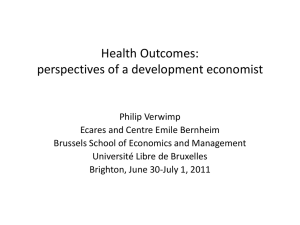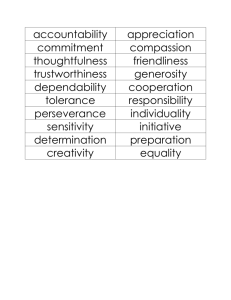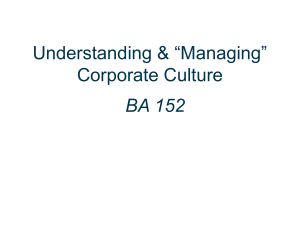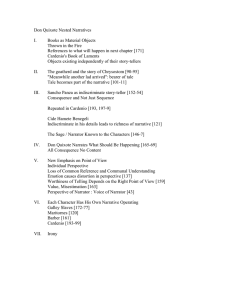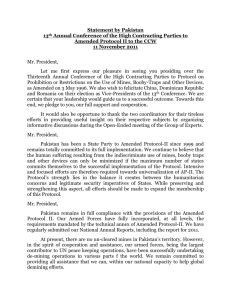Indiscriminate Friendliness in International Adoptees
advertisement
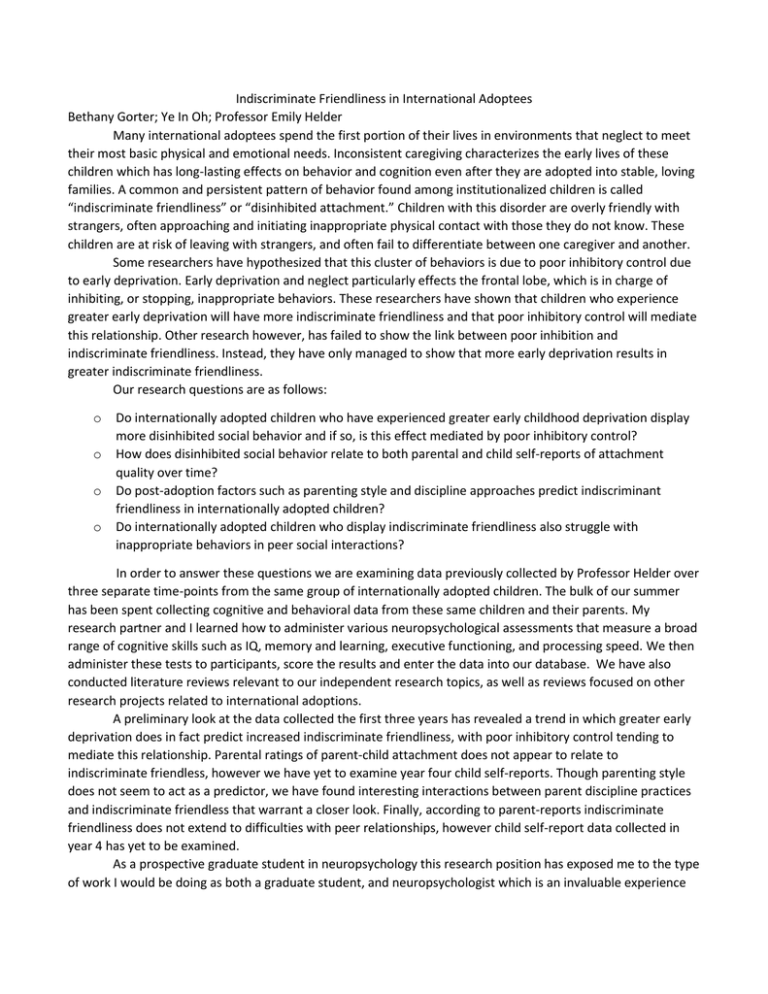
Indiscriminate Friendliness in International Adoptees Bethany Gorter; Ye In Oh; Professor Emily Helder Many international adoptees spend the first portion of their lives in environments that neglect to meet their most basic physical and emotional needs. Inconsistent caregiving characterizes the early lives of these children which has long-lasting effects on behavior and cognition even after they are adopted into stable, loving families. A common and persistent pattern of behavior found among institutionalized children is called “indiscriminate friendliness” or “disinhibited attachment.” Children with this disorder are overly friendly with strangers, often approaching and initiating inappropriate physical contact with those they do not know. These children are at risk of leaving with strangers, and often fail to differentiate between one caregiver and another. Some researchers have hypothesized that this cluster of behaviors is due to poor inhibitory control due to early deprivation. Early deprivation and neglect particularly effects the frontal lobe, which is in charge of inhibiting, or stopping, inappropriate behaviors. These researchers have shown that children who experience greater early deprivation will have more indiscriminate friendliness and that poor inhibitory control will mediate this relationship. Other research however, has failed to show the link between poor inhibition and indiscriminate friendliness. Instead, they have only managed to show that more early deprivation results in greater indiscriminate friendliness. Our research questions are as follows: o o o o Do internationally adopted children who have experienced greater early childhood deprivation display more disinhibited social behavior and if so, is this effect mediated by poor inhibitory control? How does disinhibited social behavior relate to both parental and child self-reports of attachment quality over time? Do post-adoption factors such as parenting style and discipline approaches predict indiscriminant friendliness in internationally adopted children? Do internationally adopted children who display indiscriminate friendliness also struggle with inappropriate behaviors in peer social interactions? In order to answer these questions we are examining data previously collected by Professor Helder over three separate time-points from the same group of internationally adopted children. The bulk of our summer has been spent collecting cognitive and behavioral data from these same children and their parents. My research partner and I learned how to administer various neuropsychological assessments that measure a broad range of cognitive skills such as IQ, memory and learning, executive functioning, and processing speed. We then administer these tests to participants, score the results and enter the data into our database. We have also conducted literature reviews relevant to our independent research topics, as well as reviews focused on other research projects related to international adoptions. A preliminary look at the data collected the first three years has revealed a trend in which greater early deprivation does in fact predict increased indiscriminate friendliness, with poor inhibitory control tending to mediate this relationship. Parental ratings of parent-child attachment does not appear to relate to indiscriminate friendless, however we have yet to examine year four child self-reports. Though parenting style does not seem to act as a predictor, we have found interesting interactions between parent discipline practices and indiscriminate friendless that warrant a closer look. Finally, according to parent-reports indiscriminate friendliness does not extend to difficulties with peer relationships, however child self-report data collected in year 4 has yet to be examined. As a prospective graduate student in neuropsychology this research position has exposed me to the type of work I would be doing as both a graduate student, and neuropsychologist which is an invaluable experience as I consider where my gifts, and passions lie. The ability to bolster my resume with research experience will also make me a more competitive Ph.D. candidate and may give me the edge needed to gain acceptance into Ph.D. programs. In addition, working closely with Professor Helder has exposed me to the type of work college psychology professors do, as well as granting me the opportunity to receive mentorship and advice. As I move into the fall I will continue to work on this project, and hope to produce a research paper that I can submit to a peer review journal. In addition, Professor Helder, Ye In, and I hope to submit our abstracts to the International Neuropsychological society in Boston this February where we will present posters on our findings.
